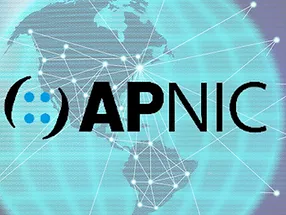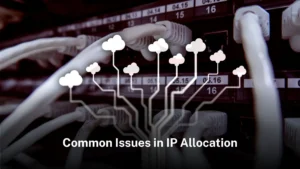APNIC (the Asia Pacific Network Information Centre) is the regional Internet address registry (RIR) for the Asia-Pacific region. APNIC is one of the world’s five RIRs, as well as it is part of the Number Resource Organization (NRO).
APNIC is a nonprofit, membership-based organization, in which the members include telecommunication providers, data centers, banks as well as universities, and various other organizations.
APNIC’s History
APNIC was founded in January 1993, and its headquarters are located in Brisbane, Australia. APNIC’s main mission and the job is the registration and allocation of IP Address space throughout the Asia Pacific region.
APNIC covers 56 economies all around Oceania and Asia which are further classified into four sub-regions: South, Southeast, Oceania, and Central-east.
APNIC holds two open meetings per year, which discusses policies and develop new strategies. APNIC also organizes courses to educate users to manage correctly, administer and configure Internet services.
APNIC’s Membership
APNIC works in the interest of its members and stakeholders within the Internet community. Currently, APNIC has more than 2,000 members spread throughout the Asia Pacific region.
APNIC’s Members are graded into tiers depending on their IP Address, which are further delineated with regards to economy and size.
All APNIC’s members are allowed to vote in the elections for the Executive Council. Most APNIC members are Internet Service Providers.
Originally formed in 1996, the APNIC Executive Council was formed by Geoff Huston as Chair, Jun Murai as Treasurer, Tze Meng Tan as Secretary, and Sanjaya as a member.
The main functions of the Asia Pacific Information Centre are:
- The allocation and registration of IPv6 and IPv4 address space, as well as ASN throughout the Asia Pacific region;
- The maintenance of a public Who is Database for the region;
- Representation to other bodies of the Internet community throughout the Asia Pacific region;
- Reverse DNS lookup delegations
APNIC’s policies are developed by the membership and the broader Internet community.
The forums for policy development are the face-to-face Open Policy Meetings. As we mentioned before, These meetings are held twice a year.
APNIC’s open PDP also invites stakeholders interested in Internet number resources from around the world to participate. These stakeholders include representatives from governments, regulators, educators, media, the technical community, civil society, and other not-for-profit organizations.
APNIC is built originally based on some values such as Transparency, as APNIC publicly discusses all policy discussions and decisions. APNIC’s also has an open approach as anyone can propose policies and all members can discuss policy proposals. APNIC is Also built on a bottom-up approach that is supposed to get all members involved in the policy-making process.
What are APNIC’s main services?
Internet number resource delegation
APNIC delegates IP addresses (IPv4 and IPv6) and (ASNs) according to policies developed by the APNIC community. All IP and AS number delegation is subject to certain criteria, based on demonstrated need.
APNIC Whois Database
The APNIC Whois Database details of IP addresses and AS numbers originally allocated by APNIC. Users can search the whois for information pertaining to these resources, for network troubleshooting, or helping to track network abuse.
This accurate registration of resource usage is a critical role APNIC plays in the operation of the Internet.
RDAP
APNIC provides an alternative to the whois called the Registration Data Access protocol (RDAP), which was designed to address issues in the whois service, the most important of which are: standardization of queries and responses; internalization considerations to cater for languages other than English in data objects; and redirection capabilities to allow seamless referrals to other registrations.
Network abuse
For network abuse such as spam or (hacking), people mistakenly interpret references to apnic.net when doing a whois search to indicate that APNIC is the source of the abuse. Instead, these references to APNIC simply mean that the address space in question was delegated by APNIC to an organization within the Asia Pacific region. APNIC has no authority to prevent these kinds of network abuse.
Resource Certification
APNIC provides a Resource Certification service, to robust security framework used to verify the association between specific IP address blocks of ASNs and the holders of those Internet number resources.
APNIC introduced Resource Certification to improve inter-domain security in the region and enhance the value of the data in the APNIC Whois Database with verification of the resource holder’s right-of-use.
One of the purposes of APNIC also, is to provide standards-based inter-networking methods for the Internet such as IPv4 and IPv6 across networks such as Ethernet. This uses a best-efforts delivery model for private networks or multicast addresses by using a 32-bit integer.
APNIC serves a multitude of organizations who use autonomous system numbers (private) that all connect to the Internet. APNIC also serves as the Whois database within the Asian continent, storing regional domain names and IP addresses and accepting queries.
APNIC provides a reverse pointer record, or reverse domain name service lookup, which associates an IP address with its domain name.
APNIC performs these activities as part of its commitment to a global, open, stable, and secure Internet that serves the entire Asia Pacific region.
How can I get IP from APNIC?
To get IP addresses from APNIC: You’ll need to provide documentation with your application: Proof of your business legal entity e.g. Certification of business incorporation. Any Internet number resources currently held by your organization. The intended use for the address space requested.
Conclusion
In conclusion, APNIC with the other RIRs are what makes the internet in the world function the way that it does.
Its main role involves the management and allocation of IP addresses and autonomous system numbers to its members and the Asia pacific community.





Pingback: The Role of APNIC in Internet Governance - NRS
Pingback: - NRS
Pingback: APNIC's Role in IP Addresses Allocation - NRS
Pingback: APNIC's Role in Fostering Digital Inclusion Across Diverse Communities - NRS
Pingback: Why Regional Internet Registries Matter - NRS.help
Having read this I thought it was extremely informative.
I appreciate you finding the time and energy to put this article together.
I once again find myself personally spending way too much time both reading and
posting comments. But so what, it was still worth it!
I am really grateful to the holder of this web page who has shared this enormous piece of writing at at this place.
Your style is so unique compared to other folks I’ve read stuff from. Thank you for posting when you have the opportunity, Guess I will just bookmark this page.
My spouse and I stumbled over here by a different web page and thought
I might check things out. I like what I see so i am just following
you. Look forward to going over your web page yet again.
Hi, Neat post. There’s an issue together with your website in internet explorer, would test this?
IE nonetheless is the marketplace leader and a good component to folks will leave out your wonderful writing because of this problem.
It’s an amazing paragraph in favor of all the internet users; they will
obtain benefit from it I am sure.